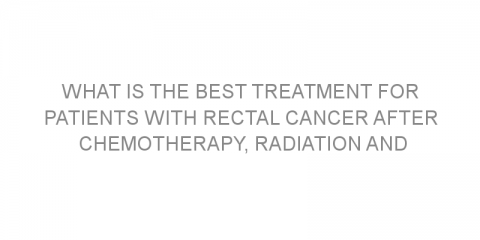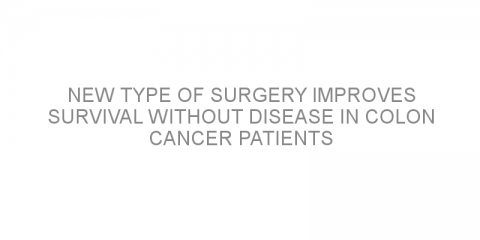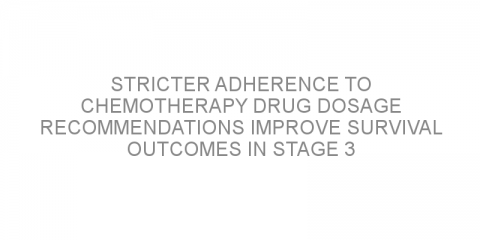In a nutshell The authors aimed to determine the effect of docetaxel (Taxotere – a type of chemotherapy) and hormone therapy in patients with metastatic (cancer that has spread) prostate cancer. Some background Chemotherapy and hormone therapy are common treatments used in prostate cancer. Chemotherapy drugs, such as docetaxel, target cancer...
Read MoreCurrent treatment status-Undergoing active treatment Posts on Medivizor
Combination of vemurafenib and cobimetinib in melanoma
In a nutshell The authors evaluated the effectiveness of a combination therapy of vemurafenib (Zelboraf) and cobimetinib (Cotellic) for the treatment of advanced melanoma. Some background In advanced melanoma (stage 3/4), cancer spreads from the skin to other parts of the body. Targeted therapy has shown improved outcomes in these stages...
Read MoreFactors associated with disease progression
In a nutshell This study explored factors that could predict disease progression following chemotherapy in breast cancer patients. The authors found that while survival rates were excellent following treatment, patients with faster-growing tumors and those with the luminal B/HER negative or triple negative subtypes had a higher risk of disease...
Read MoreWhat is the best treatment for patients with rectal cancer after chemotherapy, radiation and surgery?
In a nutshell This study compared the effectiveness of oxaliplatin (Eloxatin) with 5-fluorouracil (5-FU Oncofluor, Fluorblastin) as post-surgery treatment for patients with rectal cancer. Some background The standard treatment for rectal cancer is chemotherapy and radiation therapy before surgery. The effectiveness of post-surgery...
Read MoreReview of advanced prostate cancer treatments
In a nutshell The authors analyzed treatment options available for advanced prostate cancer. Some background At the first St. Gallen Advanced Prostate Cancer Conference leading experts met to determine the most up-to-date guidelines for the treatment of advanced prostate cancer. Advanced prostate cancer is cancer that has spread...
Read MoreEffect of BRAF inhibitors in melanoma patients with disease progression
In a nutshell The authors analyzed the effectiveness of continued treatment with dabrafenib (Tafinlar) and vemurafenib (Zelboraf) in advanced melanoma after disease progression despite treatment with these drugs. Some background In advanced melanoma (stage 3/4), cancer spreads from the skin to other parts of the body. BRAF genes are...
Read MoreNew type of surgery improves survival without disease in colon cancer patients
In a nutshell This study compared the disease-free survival rates of patients who had a complete mesocolic excision with patients who had conventional surgery for treatment of colon cancer. Some background Patients with rectal cancer have higher survival rates than colon cancer patients. This is in part due to the type of surgery carried out. Many...
Read MoreNew minimally invasive surgery for rectal cancer
In a nutshell This study investigated the outcome of a new type of surgery for rectal cancer. Some background A main treatment for rectal cancer is surgery to remove the tumor (resection) and to reattach the remaining ends of the digestive tract (anastomosis). In the past, this surgery has been done through one large cut in the abdomen, a fairly...
Read MoreStricter adherence to chemotherapy drug dosage recommendations improve survival outcomes in stage 3 colon cancer patients
In a nutshell This study investigated the effect of chemotherapy drug dose on the survival outcomes of stage 3 colon cancer patients. Some background Relative dose intensity (RDI) refers to the proportion of the standard drug dose received during chemotherapy. Previous studies have shown that an RDI greater than 70% is associated with better...
Read MoreEffectiveness of vemurafenib treatment in advanced melanoma
In a nutshell The authors investigated the effectiveness and patient response (tolerance) to vemurafenib (Zelboraf) treatment in advanced melanoma. Some background In advanced melanoma (stage III/ IV), cancer spreads from the skin to other parts of the body (metastasis). BRAF genes are often mutated (permanently...
Read MoreIpilimumab-induced hypophysitis in advanced melanoma
In a nutshell The authors analyzed the occurrence, management and risk factors of hypophysitis (a complication of the immune system following ipilimumab [Yervoy] therapy) in advanced melanoma patients. Some background In advanced melanoma (stage III/IV), cancer spreads rapidly from the skin to other parts of the body....
Read MoreTreatment options in prostate cancer patients with biochemical relapse
In a nutshell The authors determined the benefit of docetaxel (Taxotere), bevacizumab (Avastin) and hormone therapy in treating prostate cancer patients with biochemical recurrence. Some background Biochemical recurrence can occur in prostate cancer patients after primary treatment. This means there is an increase in PSA. PSA...
Read More













